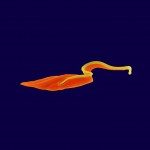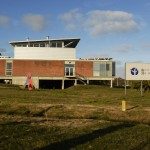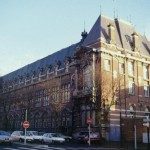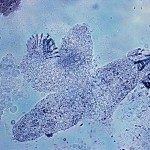About
Centrosomes (Cs) are the main microtubule organizing centers of many eukaryotic cells with critical roles in cell division, polarity, signaling and structure. Centrioles can act as basal bodies (BB), nucleating microtubules to form cilia or flagella, sensory and motile organelles of vital importance for a wide range of biological functions. Notorious deadly diseases such as cancer, microcephaly and ciliopathies correlate with dysregulation in number and/or structure of the Cs/BB. Defects in centriolar proteins also impact cell division and flagellar function of parasitic protists.
The absence of many conserved homologs of known regulatory and structural components between parasitic protozoa and their vertebrate hosts points at the Cs and BB, of apicomplexan and trypanosomatid parasites, as potentially rich sources of novel therapeutic targets to fight the parasitic diseases they cause. However, their molecular composition and the regulation of their biogenesis and function remain ill-described.
Within the framework of a previous ACIP grant (076-2017), this team pursued the characterization of the
centrosome composition in Toxoplasma gondii, and explored the localization of newly identified principles in Trypanosoma brucei. The current proposal focuses on deciphering the role of the newly identified proteins for the biology of the centrosome in T. gondii and to analyze the role of these conserved proteins in basal body biogenesis and function in T. brucei. Based on our preliminary data, and the powerful tools available in these model organisms, we now propose:
1.To analyze the phylogenetic distribution and functional domains of 20 novel proteins of T. gondii.
2. To assess the localization function and cell cycle dynamics of these 20 proteins in T. gondii.
3.To characterize the function of a protein complex linking the centrosome to nascent daughter cells in T.
gondii.
4.To characterize the role of three novel T. brucei proteins homologs in basal body biology.







